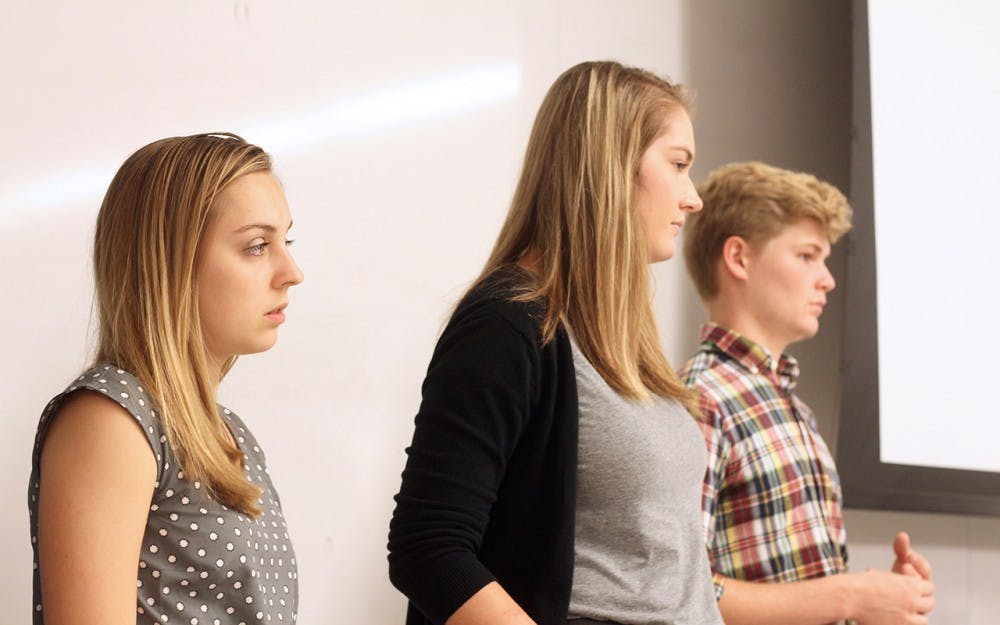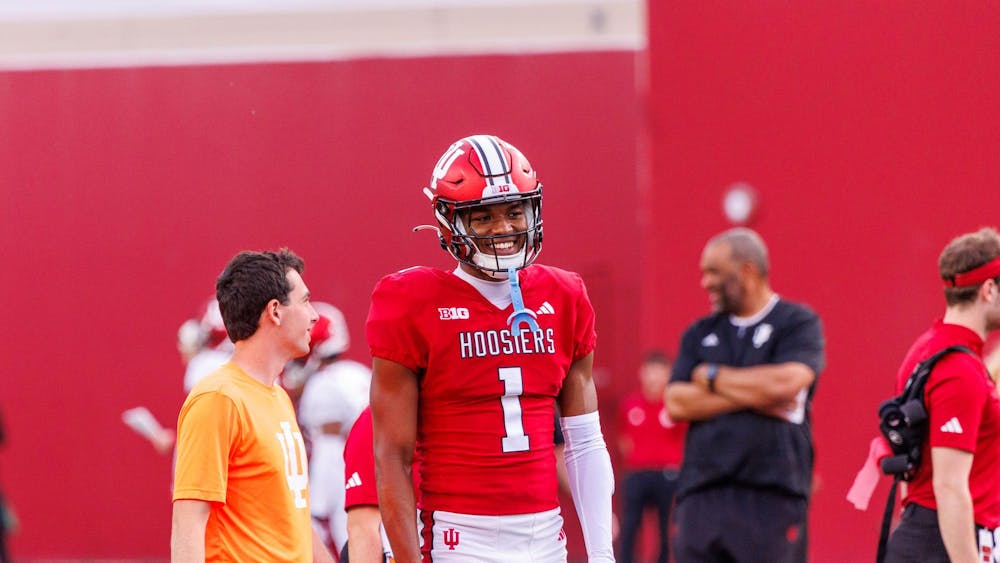The IU Student Association Congress voted in an Election Commission appointee who was involved in two campaigns accused of rule-breaking.
Congress debated the validity of the appointee, Libby Gress at its second voting meeting Tuesday night. After a discussion lasting for more than 45 minutes, Congress unanimously voted in every appointed member to the Election Commission, including Gress.
“I said in my interview that I will be very black-and-white with people who I have had communication with in the past,” Gress said.
The Election Commission organizes student body elections throughout the year. Gress was involved with two separate tickets in the past that were accused of breaking election commission rules.
Multiple students argued in favor of and against her character. Some cited a fear of bias on the commission that could cause an election to be nullified, but their fears were countered by students who asked the representatives not to punish Gress for sticking by friends and to consider her reformed.
Congress then passed a motion to vote on candidates separately instead of voting on the commission as a whole.
Once commission appointees returned to the room, they were informed of the representatives’ trepidation concerning Gress, and commission chair Eric Langowski was pushed to explain how the commission could stay unbiased.
Langowski defended Gress by explaining the application process, which requires applicants to end ties with parts of IUSA that could cause them to have bias them on the commission.
“Everyone who applied for our commission did say they had ended their involvement previously,” Langowski said. “We chose what we thought were the most qualified. We don’t select based on IUSA experience. One of the things we’re trying to work for is more transparency.”
Gress was then given the chance to defend herself in front of the Congress and swore she was no longer affiliated with people who had been accused of breaking election rules in the past.
New and returning members of the Election Commission presented themselves and their goals to the Congress Tuesday night.
This year the Election Commission, which was reformed and is now in its third year, proposed several goals. According to Langowski, the commission seeks to make it easier for candidates to run for office, increase voter turnout and increase transparency.
The commission also sought a motion to expand the number of members from ten to 11 in order to deal with a heavier workload.
After the Election Commission members had left, appointees for the IUSA Supreme Court were presented, though only chief justice appointee Jack Ryan was present for voting. IUSA president Sara Zaheer raised concerns about voting in justices that would be studying abroad in the future, but as none of the appointees were present besides Ryan, the voting was tabled.
After Zaheer presented this year’s IUSA budget and explained the specific allocations for each department, which included reductions to other departments’ budgets to fund the new Sustainability Department, all resolutions were tabled until the next Congress meeting.






